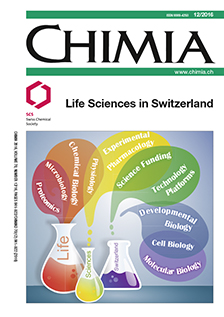Recombinant Antibodies for Academia: A Practical Approach
DOI:
https://doi.org/10.2533/chimia.2016.893Keywords:
Recombinant antibodiesAbstract
After several decades of optimization, phage display technology enables the routine isolation and production of recombinant monoclonal antibodies in vitro. As such it has the potential to provide the academic community with a vast, inexpensive and renewable supply of well-characterized reagents, reducing bottlenecks in basic science, helping increase reproducibility of experiments, and phasing out the use of animals for production and discovery of antibodies. Yet the overwhelming majority of fundamental research laboratories still use incompletely characterized antibodies developed in animals. In order to promote increased use of recombinant antibodies in academia, we have recently initiated an open source recombinant antibody facility in Geneva (http://www.unige.ch/antibodies). Here we describe our experience at the Geneva Antibody Facility: the various techniques involved in isolation and production of antibodies, the strategic choices that we have made, and what we hope will be a bright future for this project as part of a growing movement in the scientific community to replace all animal-derived antibodies with recombinant antibodies.Downloads
Published
2016-12-21
How to Cite
[1]
P. Cosson, O. Hartley, Chimia 2016, 70, 893, DOI: 10.2533/chimia.2016.893.
Issue
Section
Scientific Articles
License
Copyright (c) 2016 Swiss Chemical Society

This work is licensed under a Creative Commons Attribution-NonCommercial 4.0 International License.







